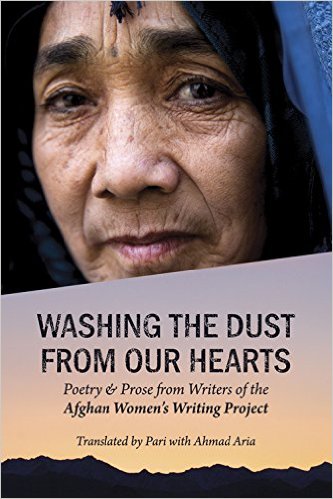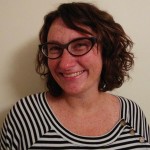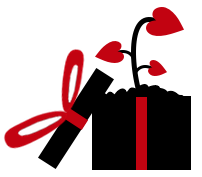Afghan Women’s Writing Project: Voicing Narratives of Change
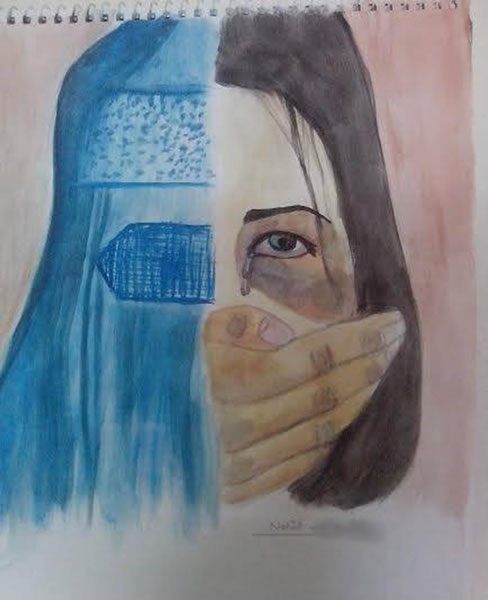 © Nahid W., 2015. Courtesy of AWWP.
© Nahid W., 2015. Courtesy of AWWP.
Under Burqa is a Girl
By NAHID W.
I burned under the burqa.
No one could see my tears,
Hear my voice,
Feel my pain.
No one could grant me my rights,
Give me respect,
Lead me to knowledge.
What was my sin?
Being a girl?
BY CELESTE HAMILTON DENNIS | THE BURQA ISSUE | WINTER 2015|2016
The poems by Afghani writers Nahid W., Roya, and Norwan speak to the power of the pen. They are raw. They are brave. They are what happens when women bear witness to their own stories without inhibition, without judgment, and without fear.
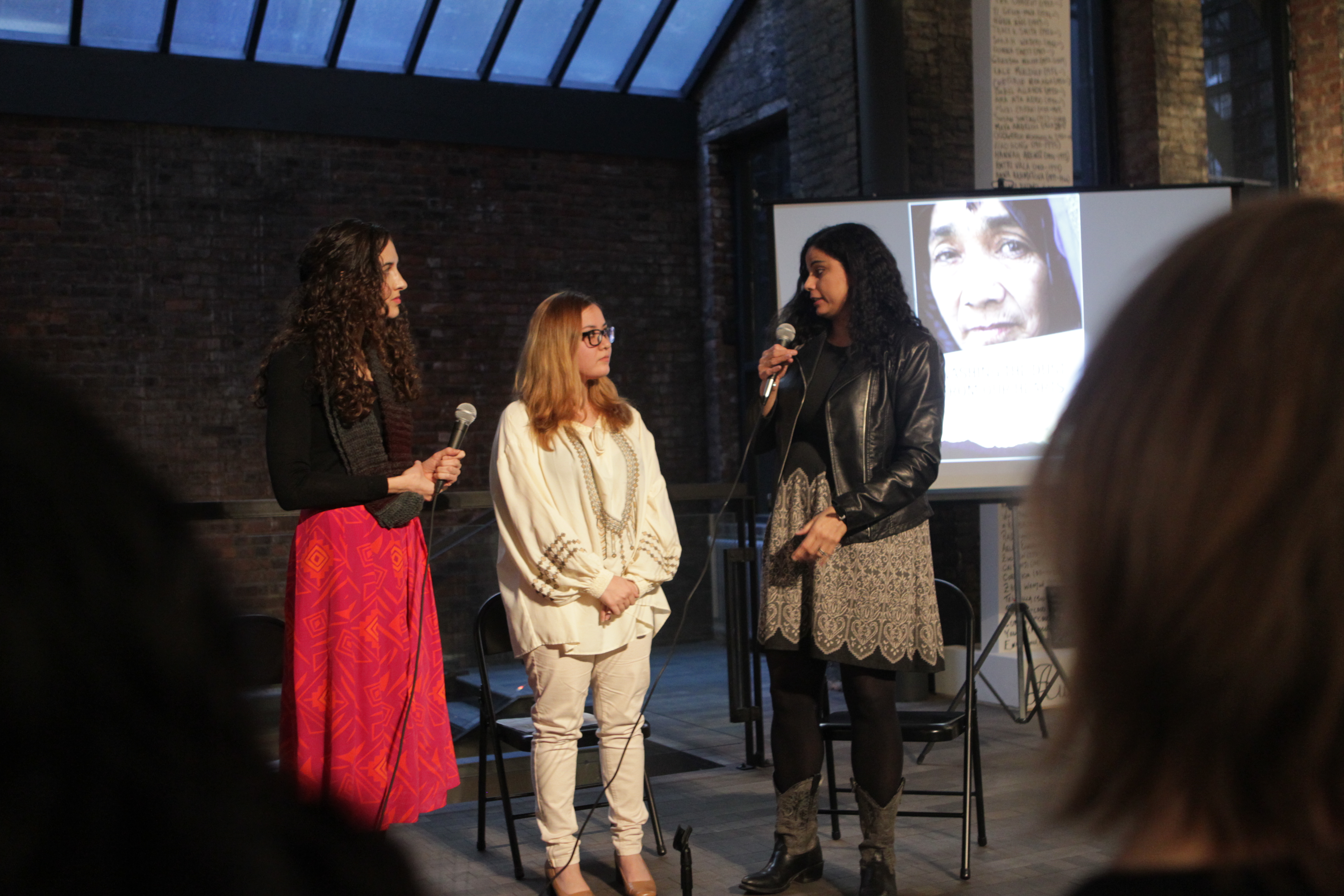
Art of Burqa event in NYC (March 6, 2016) — Flickr

Lori Noack: Women Writers Crafting Their Own Narratives — The Clarion Project
The three women write under pseudonyms as part of the Afghan Women’s Writing Project (AWWP). Since its start in 2009, the all-volunteer run nonprofit has encouraged nearly 400 women from Afghanistan to emerge from beneath the burqa and tell their own truths.
Fueled by the belief that it’s a basic human right to tell one’s own story, journalist Masha Hamilton founded AWWP to empower Afghani women to write their own narratives, and in the process, change the narrative of women’s rights in Afghanistan.
At the heart of AWWP are online workshops taught by published authors, educators, and journalists from around the world. On the ground in Afghanistan, AWWP hosts trainings and reading salons, records oral histories, provides laptops and Internet access, and more—often all in secret as writing is considered unworthy for women to do. As the country struggles to get out from under Taliban dominance, the idea of a woman using her voice to challenge the conservative gender norm can result in violence, or worse, murder.
AWWP was born from bearing witness to this threat. When Hamilton saw a smuggled videotape of the Taliban brutally executing a mother of seven, Zarmeena, in a soccer stadium in 1999, she knew there had to be more to the story. Zarmeena’s silence was deafening.
For many writers in the program, the mere process of creation has had ripple effects beyond the page. One writer ran for parliament—and won. Others have become journalists or lawyers. Roya, whose poem “Remembering Fifteen” is below, says it best:
AWWP gave me the power to feel I am not only a woman; it gave me a title, an Afghan woman “writer.” I took the pen and I wrote and everything changed. I learned that if I stand, everyone will stand, other women in my country will stand.
Their stories and poems are featured online and then anthologized for a global audience. The most recent book, Washing the Dust from Our Hearts, conveys the complex experience of being an Afghani woman.
From surviving explosions at school to demanding men listen to dreaming about being an astronomer, the collective power between the pages is palpable. A reader can’t help but feel honored to have such a privileged glimpse into the women’s inner lives.
For many, the book is the first time they will see their words printed in both English and their native language, Dari (Afghan Persian).
Because of AWWP these women have gained the strength to speak up, the self-confidence to pursue their dreams, and the courage to enact change in their homes and communities. They are the voices of a new Afghanistan. Together, their words carry the hope of a nation.
.
Remembering Fifteen
By ROYA
And I feel so young
Pains start growing inside of me
I begin to hear
You have to
have to
have to
I have to live with “have to.”
I have to buy a burqa and
hide the world under it
I have to forget the sun
To talk about the moon is a risk
I have to wear clothes
people choose
The colors they dictate
I have to live with negative imperatives:
Don’t laugh!
Don’t speak loudly!
Don’t look at men!
Shut up!
I am bored hearing: “Don’t, Don’t, Don’t”
I am fifteen and
the boy I cannot forget
waits on the street
to see me with my burqa
on the way to Lala’s bakery
and gives me postcards
of birds flying in a sky
filled with freedom
he knows my smell
love is blind for him
he lives with the smell of a woman.
And Mama always says, be like other people,
be like other people
I wonder If I agree.
I have to learn how to bear
the pain of being human
the pain of being a woman
the pain if Dad discovers
the postcards hidden between the bricks of the wall
the pain if the neighbor’s naughty son steals the postcards
the pain if Dad says, never ever go to the bakery
the pain if the rain washes the mud off the wall
where his letters are hidden
The rain does wash the mud away along with his words on the letter
“I love you and I love your blue burqa.”
But the rain can’t wash his love from my heart
the rain can’t wash the pain from my heart
still I keep my blue burqa
in the museum of memos
still I paint the birds
with blue wings.
and Mama still says, be like other people, be like other people
and Mama still says, be like other people,
and Mama…
Eyes of My Burqa
By NORWAN
World is a small word
From the eyes of my burqa
There is no geography
I can’t see my right,
Nor can I turn to my left
Hot in the summer, cold in the winter.
Wearing a burqa, I wear a tent
That hides my beauty
My mouth is blind
I have to eat my voice
My hands are locked in a cage
Sentenced to move or shake.
My legs too ashamed to walk
My long burqa sweeps the dust
I don’t know who I am under the tent
My heavy burqa,
You can’t see my pen
Nor my paper.
Under the burqa
I am an Afghan woman writer
Searching for a house of freedom
Reprinted with permission of Afghan Women’s Writing Project.
♦
Celeste Hamilton Dennis is an editor at OF NOTE and freelance writer living in Portland, Oregon. When she’s not working on her book of short stories or interviewing social entrepreneurs, she’s scheming to get back to her Peace Corps Guyana days. She occasionally participates in modern life and tweets at celestehdennis.
OF NOTE Magazine is free to readers, free of advertising, and free of subscriptions—all made possible by generous supporters like you. Your tax tax-deductible gift will help us continue to feature innovative and emerging global artists using the arts as tools for social change.
OF NOTE Magazine is a fiscally sponsored organization of the New York Foundation for the Arts, a 501 (c) (3), tax-exempt organization. All donations are 100% tax-deductible to the full extent of the law.

